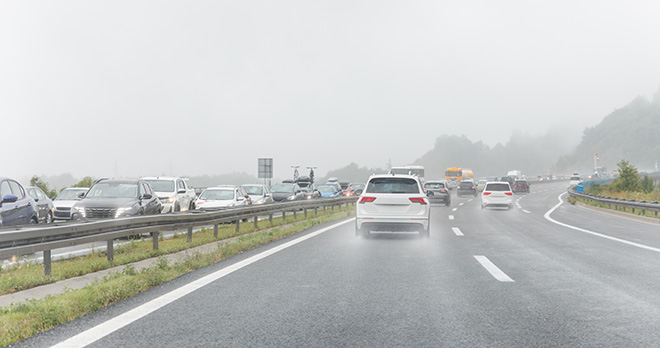How can an English injury claim judgment be enforced in France post-Brexit? A recent case may illustrate.

Four years on, personal injury practitioners handling cross-border claims have cautiously begun to navigate a new landscape: issuing accident abroad claims in England & Wales, applying for permission to serve out of the jurisdiction, responding to forum non conveniens challenges.
Whilst the jurisdiction regime has become somewhat clearer, with a number of decisions now available (although not always consistent), a significant uncertainty lingers: how enforceable will any judgment obtained in England and Wales be in foreign jurisdictions, particularly in France? And ultimately, will the efforts deployed to secure jurisdiction in England and Wales prove worthwhile?
The Legal Framework for UK-France Judgment Recognition and Enforcement
The framework1 governing the recognition and enforcement of UK judgments in France remains uncertain.
Reviving the bilateral convention of 1934?
On the one hand, there is a possibility that a bilateral convention between the United Kingdom and France for the reciprocal enforcement of judgments of 1934 be revived. This was the instrument applicable between France and the UK before the 1968 Brussels Convention, which was in force when the UK joined the EU in 1973 but was only embedded into the domestic legal system through the Civil Jurisdiction and Judgments Act 1982, later becoming the Brussels Regulation 44/2001 and then Regulation 1215/2012.
Around the time of the Brexit negotiations, some writers referred to this convention and questioned whether the legal framework between the UK and France on the question of enforcement of judgments would fall back to that convention, or whether it had been ‘superseded’ by the 1968 Convention and could not be revived. They had divergent views.
If the convention is deemed applicable, the criteria for recognition and enforcement of a judgment given in the other country are outlined in article 5 (referring to article 3) and essentially relate to:
- jurisdiction of the original court;
- proper service of the proceedings having led to the judgment (if given by default);
- public policy;
- lis pendens;
- whether the judgment was obtained by fraud;
- whether the judgment was given against a person who was entitled to immunity.
Using French common law (in the absence of any international or bilateral convention)?
On the other hand, should the bilateral convention of 1934 not be revivable, then French courts would apply French common law to decide whether a foreign judgment can be recognised and enforced in France.
There are three cumulative conditions to meet in the instance French common law is used to enforce foreign judgments:
- The French court will check that the foreign court had jurisdiction (in particular, this condition will not be met if the French court considered it had exclusive jurisdiction to deal with the claim; it will also check that the claim ‘has some connection’ with the country in which the judgment was given);
- The foreign judgment must comply with international public policy, i.e. fundamental principles of law, human rights etc.;
- The foreign judgment should not have been obtained by fraud (e.g. essentially to avoid a decision of the French judge and come back by the back door).
Exequatur Proceedings
Under either regime, proceedings for exequatur must be issued in the French local court, with the aim of obtaining a decision by the French judge declaring the foreign judgment enforceable.
Whether under the convention or under common law, the French court cannot revise the substance of the foreign judgment, save for the remarkable exception at article 5 (2) of the 1934 convention:
“where a judgment is rendered enforceable the costs recoverable under the judgment shall also be enforceable. Nevertheless the court applied to may on the application of the judgment debtor limit the amount of the costs to a sum equal to 10% of the sum for which the judgment is rendered enforceable”.
This could present a significant challenge for English claims, where legal costs often exceed or equal the amount of damages awarded.
A recent French first instance judgment
A recent decision by the Tribunal Judiciaire of Paris (on 23 October 2024, no. RG 23/05167) has recently dealt with the precise question of enforcement of an English judgment. In this case it arose from a personal injury claim after a road traffic accident in France (presumably) issued post-Brexit, where the parties agreed in the exequatur proceedings that the 1934 convention applied.
The key points examined by the French court in that case related to:
- jurisdiction of the English court: the French judge checked and accepted that the English court had jurisdiction in accordance with French domestic rules;
- validity of service of the claim on the defendant in England (as the judgment was given by default) and compliance with international public policy (the court checked that the defendant was validly served with court papers, with translation, and that it had had ample time to defend itself in the original proceedings);
- whether the foreign judgment was enforceable in England (it was considered as such).
There was no argument about costs. It appears from the case summary that damages amounted to €10,086 and £284, and legal costs to £28,092.71.
The English judgment was declared enforceable in full.
This decision provides valuable insight into how French courts might handle similar cases going forward. However, it does not establish binding precedent and can only be viewed as illustrative. A definitive ruling from the French Court of Cassation would be required to confirm whether the 1934 convention applies and to provide greater clarity on the enforcement regime (unless a fresh EU-UK agreement, or an international convention, eventually fills the gap).
[1] The Hague Convention 2019 (which will come into force on 1st July 2025 and apply to claims issued thereafter) will be of limited assistance to victims of personal injury.
If you have been injured whilst in France, and think you may have a claim for compensation, contact our specialist injury solicitors.
Call now












